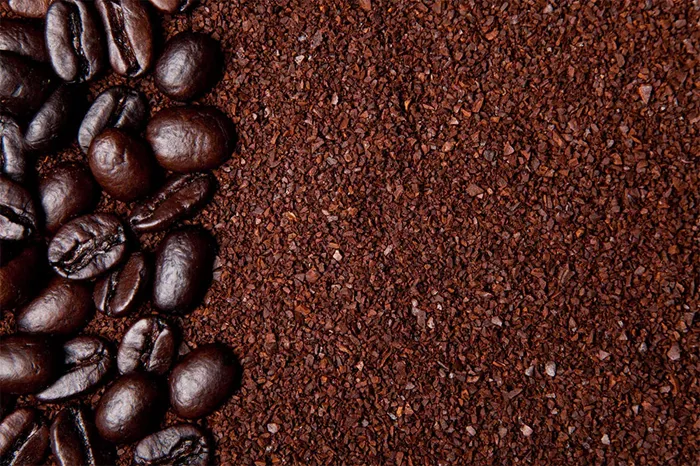When it comes to caffeine, many people automatically think of coffee, tea, or chocolate. But what about vanilla? With its rich and aromatic flavor, vanilla is a key ingredient in many culinary creations, from sweet desserts to savory dishes. A common question that arises is whether vanilla beans contain caffeine, especially when considering the growing demand for caffeine-free options. Let’s explore the truth behind this inquiry.
Caffeine Content in Vanilla Beans
No Caffeine
The simple answer is that vanilla beans do not contain caffeine. Vanilla is a flavoring derived from the vanilla orchid (Vanilla planifolia), a tropical plant native to Central America. Unlike coffee beans or tea leaves, vanilla beans are naturally caffeine-free. They are grown for their rich, sweet flavor, not for their stimulating properties, making them a safe choice for those looking to avoid caffeine.
Comparison with Coffee
While coffee beans are well-known for their caffeine content, which provides a stimulant effect, vanilla beans do not offer such benefits. Coffee contains significant levels of caffeine, which contributes to its energizing qualities and widespread use as a morning pick-me-up. In contrast, vanilla beans are used primarily for flavor and aroma, adding a smooth, sweet essence to foods and drinks without the stimulating effects associated with caffeine.
Uses of Vanilla Beans
Culinary Uses
Vanilla beans are a staple in many kitchens, prized for their ability to enhance both sweet and savory dishes. In baking, they are commonly used in cakes, cookies, and custards, where their sweet flavor adds depth. Vanilla also plays a key role in desserts such as ice cream, crème brûlée, and puddings, making them richer and more aromatic. Beyond sweet treats, vanilla beans can be used to infuse beverages like coffee substitutes, smoothies, and teas, or to add a delicate flavor to savory dishes such as sauces, dressings, and marinades.
Flavor Profile
The flavor of vanilla beans is complex and multi-dimensional. It is rich, sweet, and slightly floral, with hints of caramel and spice. The natural vanilla flavor is prized for its warm, comforting notes, making it an enduring favorite in culinary applications worldwide. This unique taste profile is what makes vanilla a versatile ingredient in a wide range of recipes.
Health Benefits of Vanilla Beans
Antioxidants
Vanilla beans are more than just a flavoring agent; they also offer potential health benefits. They contain a variety of antioxidants, such as vanillin, which can help combat oxidative stress in the body. These antioxidants are known to protect cells from damage caused by free radicals, promoting overall health and wellness. While not a replacement for a balanced diet, incorporating vanilla beans into recipes may contribute to a healthier lifestyle.
Calming Effects
The aroma of vanilla is renowned for its calming and soothing effects. Research suggests that the scent of vanilla may have mood-enhancing properties, potentially reducing feelings of anxiety and stress. In aromatherapy, vanilla’s sweet fragrance is often used to create a relaxing atmosphere, helping to promote emotional well-being. While the scientific evidence for vanilla’s calming effects is still emerging, many people enjoy the subtle relaxation it can bring.
Forms of Vanilla
Whole Beans
Whole vanilla beans are the most potent form of vanilla. To use them, the beans are typically split open lengthwise, and the tiny black seeds inside are scraped out. These seeds are then used to infuse dishes with their aromatic essence. The outer pod can also be used to make vanilla-infused liquids such as syrup, or it can be steeped in milk or cream to extract its flavor.
Extracts and Powders
Vanilla extract and vanilla powder are more convenient forms of vanilla that are commonly used in cooking and baking. Vanilla extract is made by soaking the vanilla beans in alcohol, which extracts the rich flavors. Vanilla powder, on the other hand, is made from grinding dried vanilla beans into a fine powder. Both forms provide a potent and concentrated flavor that can be easily incorporated into recipes.
Alternatives for Caffeine-Free Flavoring
Vanilla as an Alternative
For those seeking a caffeine-free flavoring option, vanilla is an excellent choice. It can be used to enhance the taste of various beverages, offering a comforting, sweet flavor without the need for caffeine. Vanilla is commonly added to caffeine-free coffee substitutes, herbal teas, or smoothies, making it a versatile addition to your caffeine-free repertoire.
Combination with Other Ingredients
To create truly unique, flavorful, and caffeine-free beverages, consider combining vanilla with other natural, caffeine-free ingredients. For example, pairing vanilla with cocoa can create a rich, chocolaty drink without caffeine, while adding spices like cinnamon or nutmeg can offer a warming, aromatic experience. These combinations provide endless possibilities for those looking for a flavorful alternative to traditional caffeinated drinks.
Conclusion
In summary, vanilla beans are completely caffeine-free, making them an ideal choice for those seeking to avoid caffeine while still enjoying rich, flavorful ingredients. Whether used in culinary creations, for their health benefits, or as a caffeine-free alternative in beverages, vanilla beans offer a versatile and aromatic option. Their sweet, comforting flavor profile and potential health benefits, combined with their natural lack of caffeine, make them a staple ingredient in kitchens and wellness routines alike.
Related topics:
- What Coffee Beans Does Starbucks Use?
- How Much Ground Coffee Does 1 Cup of Beans Make? A Comprehensive Guide
- How Does Salt Take Away the Bitter Taste of Coffee?


